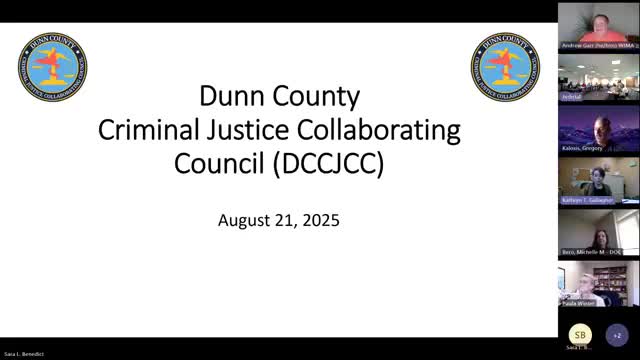Article not found
This article is no longer available. But don't worry—we've gathered other articles that discuss the same topic.
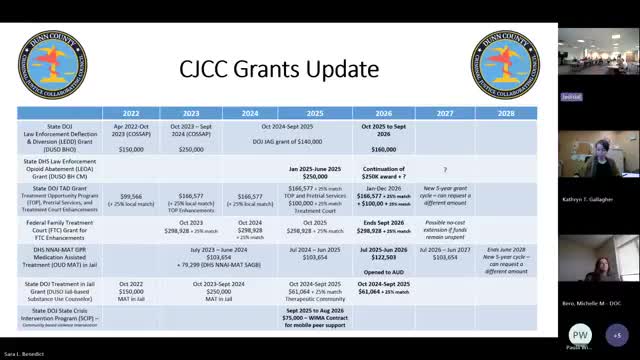
Clerk’s data show mixed trends: juvenile filings down, misdemeanors steady
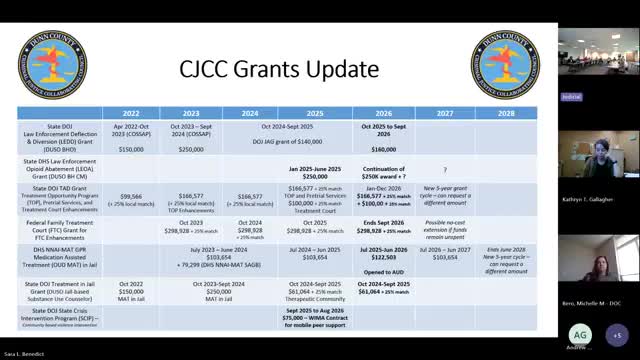
CJCC backs multiple grant renewals and applications; staff to attach action to letters
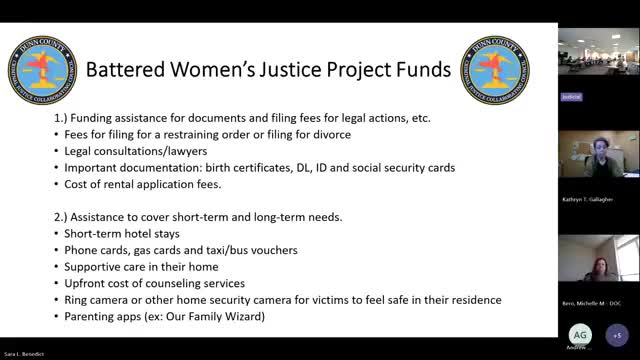
CJCC approves $5,000 Battered Women’s Project spending plan with $200 per-family cap
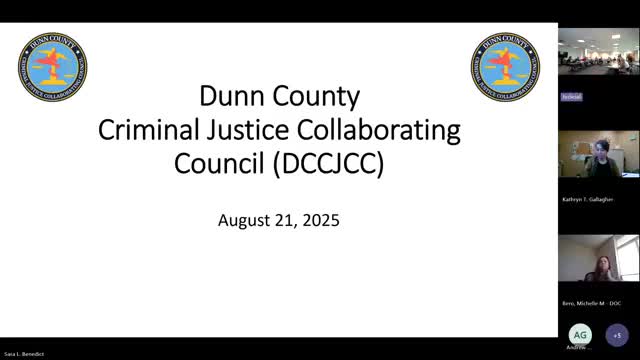
CJCC amends bylaws to allow single designee to attend more than two meetings
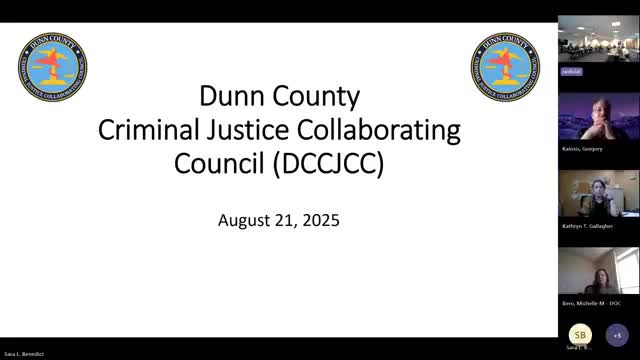
Dunn County jail’s Therapeutic Community expands peer‑led treatment and mentoring
